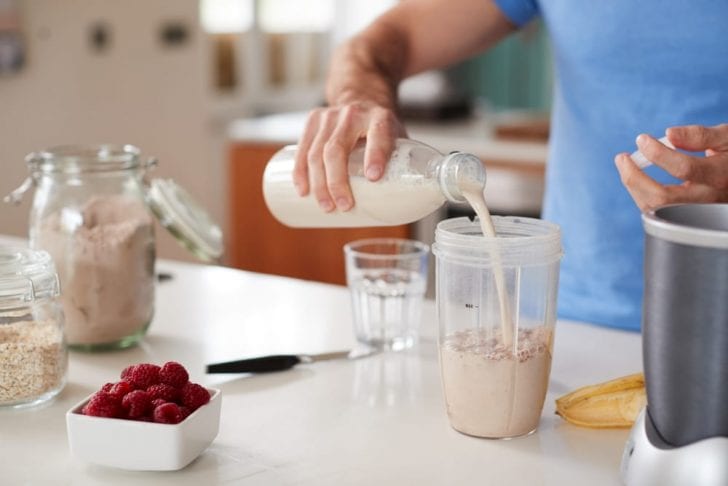We’ve often been told that protein is an important part of our diet that helps in the recovery and growth of cells—especially those in our muscles.

Shutterstock | Protein is the building block of the human body
The health community’s fascination with the nutrient has given a boost to the protein supplement business, and the fact that something as processed as powdered protein is even considered a supplement shows just much we’re obsessed with protein.
And why shouldn’t we be? After all, protein is the building block of the human body responsible for several key functions such as hormone regulation and tissue repair.
While the health community has been battling over the never-ending carb vs. fat debate, with some saying the former is bad for health whereas others maintain that the latter is worse, protein seems to be the only macronutrient that hasn’t been subjected to a lot of controversies. In fact, its consumption has only increased with time.
But before you go to the kitchen and make yourself a protein shake, let’s look at some cold, hard facts – starting with how much protein you actually need in your diet.

Shutterstock | How much protein do you actually need in your diet?
How Much Protein Is Enough?
It’s advised to consume 0.8 grams of protein per kilogram of body weight by the recommended daily allowance (RDA) can vary depending on other factors such as gender, activity level, and age. But if you were to go by the general guidelines, a healthy person weighing 150 pounds would only need 54 grams of protein, an amount that is fairly achievable through a balanced diet.
If you’re not sure how much protein you’re consuming through only foods, here are a few reference points to help you make a guess: a large egg has around 6 grams of protein, a 4-ounce chicken breast has 27, a cup of cooked lentils has 20, whereas a recommended serving of peanut butter (two tablespoons) has 7 grams.
Even if you were to eat nothing else, the aforementioned foods alone would fulfill your daily protein requirement. Then why do people turn to supplements to increase their protein consumption? It has been said quite often that higher protein consumption equals more gains, but after what point do the returns start to diminish.

Shutterstock | It has been said quite often that higher protein consumption equals more gains
Researchers say that for an athletic individual looking to gain more muscle mass, 1.4-2 grams of protein should be plenty, consumed gradually throughout the day for better absorption.







